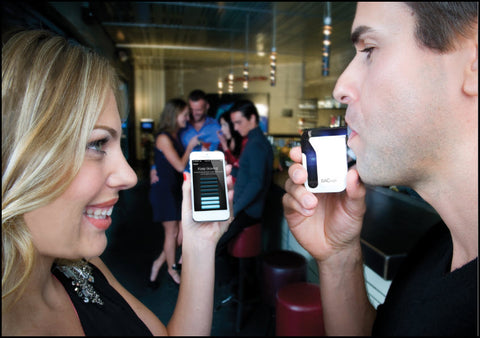How Much Alcohol is in That Drink?
How Much Alcohol is in That Drink?
Unless you're acting as your own bartender or have access to the labels, it can be very difficult to tell how many standard drinks you've consumed over a period of time--which makes estimating your BAC a difficult task.
Most bartenders use a jigger to determine how much alcohol they put in your drink, which is precisely 1.5 oz. of alcohol. Certain jiggers also have a smaller 1.0 oz. cup, which is called a pony shot. Simple mixed drinks, like vodka sodas or rum and cokes, use one full jigger of alcohol, and their respective mixer. Though the sugar content of your mixer can affect your BAC somewhat, overall, these types of drinks in these measures equal one standard drink.
But what about more complex cocktails? For example, a gin martini contains gin and dry vermouth--in varying quantities. A margarita contains tequila and triple sec--but again, the mixture depends on who is making the drink. One of these more complex cocktails could equate to anywhere from one to three standard drinks. So how can you be sure of how many drinks you've consumed?
The short answer is: you can't. This is why counting drinks and using BAC calculators is an inherently flawed method of determining your BAC. Add this to the fact that your BAC is affected by so many different factors, many of which you can't control, and you begin to see why counting drinks can be very dangerous indeed--especially if used to determine readiness to drive or operate machinery.

It's only by using a breathalyzer that you can easily estimate your blood alcohol content. These devices use your breath as evidence to estimate your individual BAC. There's no more accurate and convenient way to see where you stand--within seconds.
And with the newest BACtrack device, the BACtrack Mobile Breathalyzer, you can even estimate when your BAC will return to 0.00%--a very useful thing to know.
Stay safe and stay informed--use a breathalyzer to accurately estimate your BAC every time you drink.




